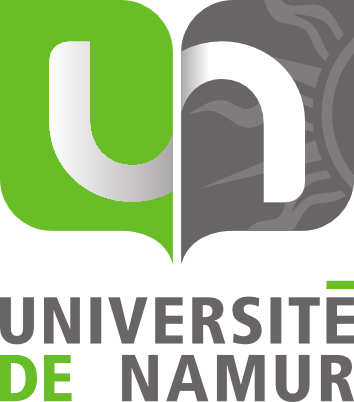Défense de thèse de doctorat en sciences biologiques
Unravelling the effects of proton irradiation on macrophages in cancer
Date : 30/05/2018 15:00 - 30/05/2018 17:00
Lieu : Amphithéâtre L12, rue Grafé, 5000 Namur
Orateur(s) : Géraldine GENARD
Organisateur(s) : Carine MICHIELS
Jury
Olivier FERON (UCL), Peter HUBER (DKFZ, Heidelberg), Anne-Catherine HEUSKIN, présidente (UNamur), Yves POUMAY (UNamur), Stéphane LUCAS (UNamur), Carine MICHIELS, promoteur (UNamur)
Résumé
Tumor-associated macrophages (TAMs) are the most abundant constituents of the tumor microenvironment. In addition, these cells influence key processes in tumor progression. TAMs are mostly associated to a M2-like phenotype, characterized by anti-inflammatory properties and pro-tumoral functions. This phenotype contrasts with the M1 phenotype which is associated to pro-inflammatory, phagocytic and anti-tumoral roles. Interestingly, microenvironmental changes in tumor may easily switch the phenotype from M2 to M1, or inversely. Therefore, re-educating M2-like TAMs towards a M1-like phenotype with treatment modalities represents a promising therapeutic strategy to elicit tumor regression. As a local treatment, radiotherapy represents an attractive strategy. Until now, conventional radiotherapy (X-rays and g-rays) have not succeeded in TAM reprogramming. As radiotherapy is a continuously evolving field, new types of advanced radiotherapy have emerged, such as protontherapy. By presenting several physical advantages over conventional radiotherapy, protontherapy is a powerful therapeutic tool used to precisely target the tumor. Interestingly, protontherapy has demonstrated different radiobiological effects on tumors compared to X-ray irradiation. Therefore, understanding the effects of proton irradiation on macrophages, and more specifically on their reprogramming, could allow re-evaluating the use of protontherapy for cancer treatment. For the first time, our study revealed that proton irradiation orchestrates macrophage reprogramming in M2-like macrophages through the activation of NFkB. Our results also evidenced that the presence of cancer cells does not influence proton-induced macrophage reprogramming. As a whole, this study further underpins the huge potential of protontherapy for targeting TAMs in tumors.
La défense est publique
Télecharger :
vCal
